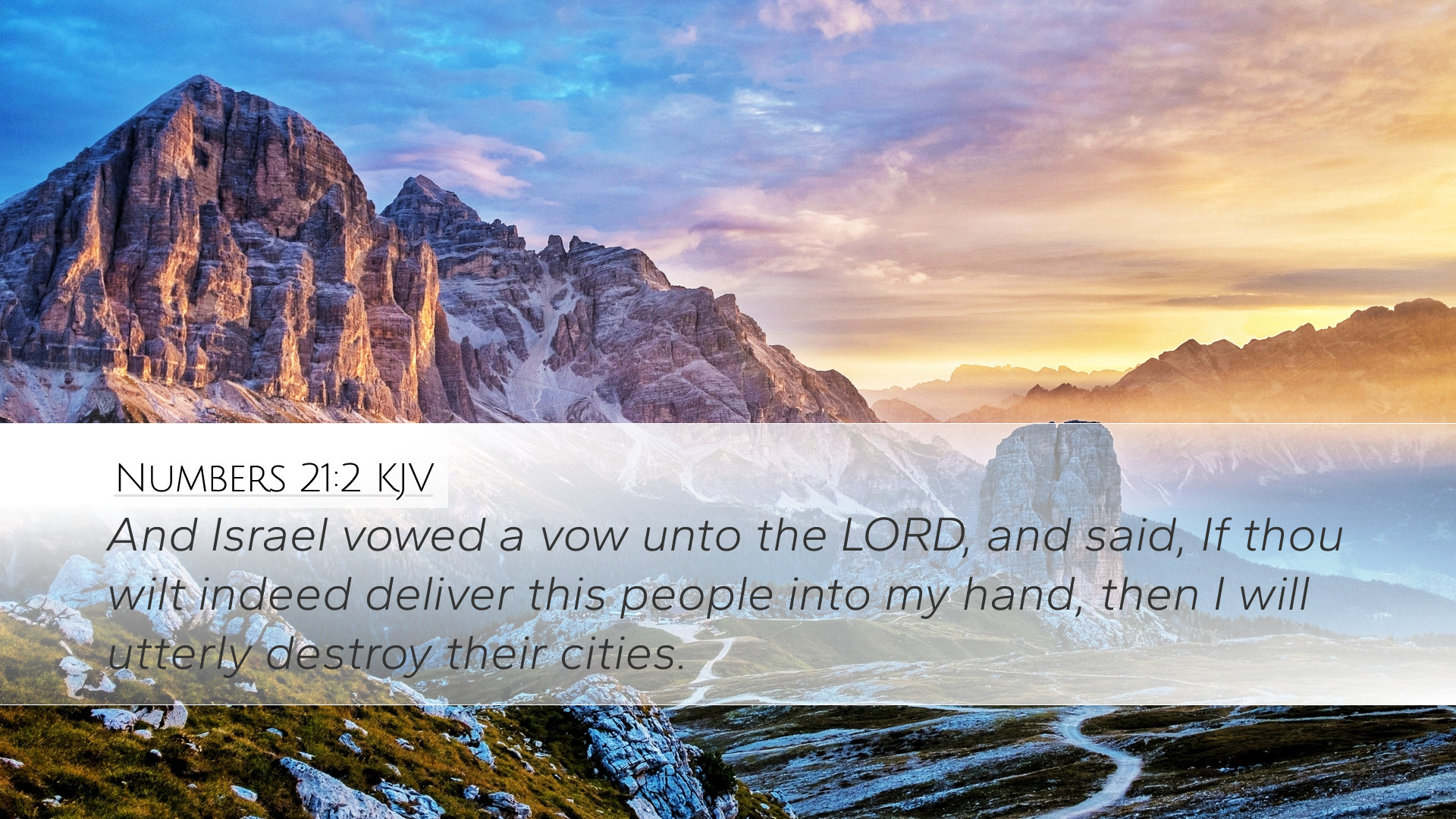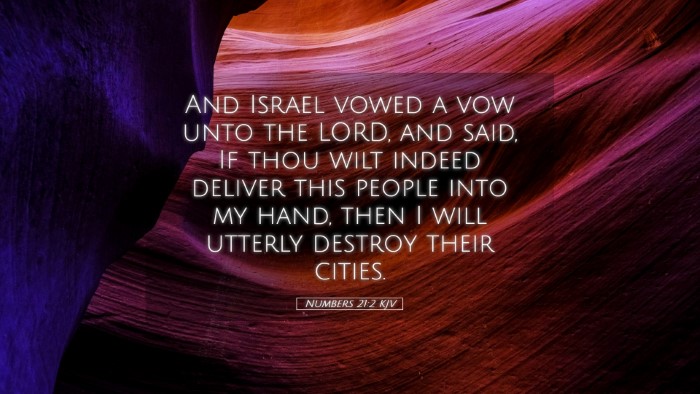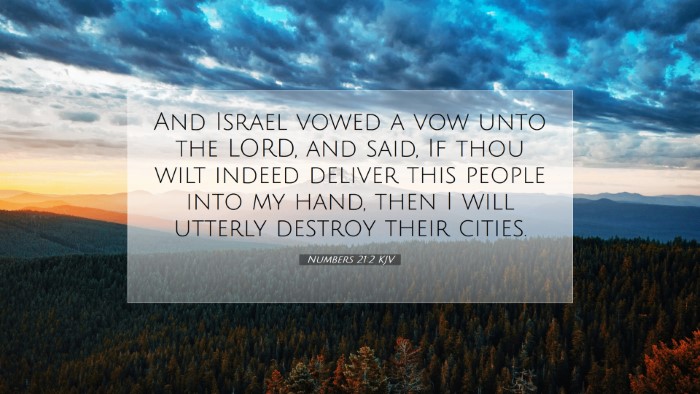Commentary on Numbers 21:2
In Numbers 21:2, we encounter a pivotal moment during the Israelites’ journey in the wilderness. The verse states:
"And Israel vowed a vow unto the LORD, and said, If thou wilt indeed deliver this people into my hand, then I will utterly destroy their cities."
Contextual Background
This verse takes place during a crucial phase in the Israelites’ trek from Egypt to the Promised Land, characterized by trials, tribulations, and divine encounters. The Israelites have completed significant legwork through the wilderness, yet they face relentless challenges, including combat with neighboring tribes.
The Vow of Israel
The act of vowing in ancient Israel involved a sacred commitment to God. Matthew Henry emphasizes that vows are to be taken seriously, reflecting a deep reliance on God’s help and guidance. In this context, the Israelites express their need for divine intervention for victory over the Canaanites.
- Nature of the Vow: The vow is contingent upon God granting them victory. This exemplifies a transactional nature often seen in the Old Testament where blessings and obligations are intertwined.
- Destruction of Cities: The plan to "utterly destroy their cities" reveals the depth of commitment Israel is willing to offer in return for divine assistance. Adam Clarke notes that such a vow may demonstrate their urgency and seriousness in confronting the enemies of God’s people.
- Significance of Divine Intervention: Their call for help highlights the acknowledgment of human inability and the necessity for divine power, showing a clear dependence on God.
Theological Reflections
From a theological standpoint, this verse serves as a reminder of God's sovereign power over nations and His willingness to assist those who earnestly seek Him. Albert Barnes notes that God honors vows made in true faith.
- Faith and Commitment: The Israelite vow is not merely a plea for assistance; it is a commitment of faith. It illustrates how believers today are called to trust in God’s providence while also committing to His righteous paths.
- Realities of Warfare: The verse symbolizes the spiritual warfare faced by believers. Similar to Israel’s fight against the Canaanites, Christians today are engaged in struggles against sin and worldliness.
- Responsibility to Respond: The vows made by Israel remind present-day believers that responding to God’s grace entails commitments that should reflect their faith and trust in Him.
Application for Today’s Believers
In applying this scripture to contemporary life, several themes emerge that resonate with the life of faith in today’s world:
- Seeking God’s Guidance: Just as the Israelites sought divine intervention, believers are encouraged to seek God earnestly in their battles against adversity.
- Making Serious Commitments: The importance of vows and commitments in the believer’s life is underscored by Israel’s vow. Present-day believers should be deliberate in their promises to God.
- Understanding Victory in Christ: The ultimate victory over sin and death has been achieved through Christ. Believers are assured of their fighting chance against spiritual enemies through faith.
Conclusion
Numbers 21:2 serves as a call to faith and a reminder of God's ongoing involvement in the lives of His people. The Israelites’ request highlights their devotion and commitment, encouraging believers today to reflect deeply on their own vows and reliance on God's power.
This commentary, informed by the insights of Matthew Henry, Albert Barnes, and Adam Clarke, equips pastors, students, and theologians with rich reflections on how ancient texts resonate profoundly in today's spiritual journey.


